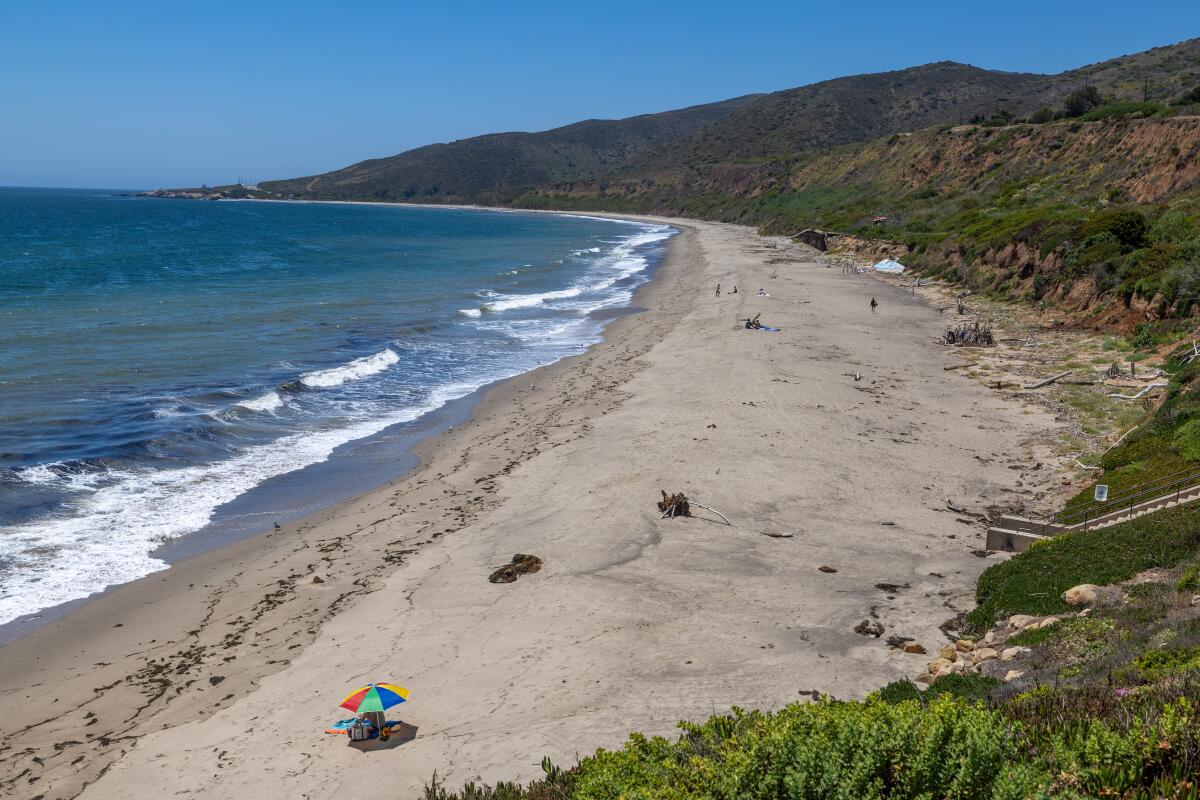L.A.’s night of agony: RFK’s assassination and its long, dark shadow
- Share via
Good morning. It’s Tuesday, July 16. I’m Shelby Grad, deputy managing editor for news, and here’s what you need to know to start your day.
- A night of political violence that continues to haunt us.
- Trump picks Ohio Sen. J.D. Vance as running mate.
- The 50 best beaches in Southern California.
- And here’s today’s e-newspaper
You're reading the Essential California newsletter
Our reporters guide you through our biggest news, features and recommendations every morning
You may occasionally receive promotional content from the Los Angeles Times.
June 5, 1968, one of L.A.’s darkest nights
Political violence can cast an oppressively long shadow — as Los Angeles knows only too well.
It was here, on June 5, 1968, that Robert F. Kennedy was assassinated at the Ambassador Hotel after being named the winner of the California presidential primary.
The killing was captured by television cameras, which made the horror even worse as it was replayed over and over. Kennedy’s killing sent Los Angeles into deep mourning; for days, the young progressive had pinged across the city, paying special attention to Black and Latino communities that politicians often passed over.
For me, the most painful photos were not of the killing itself but of the somber scenes outside Good Samaritan Hospital, where hundreds converged in darkness for a vigil for RFK that turned into a death watch.
The next morning, the crowds swelled into the thousands as his body was taken by hearse from the hospital to Los Angeles International Airport.
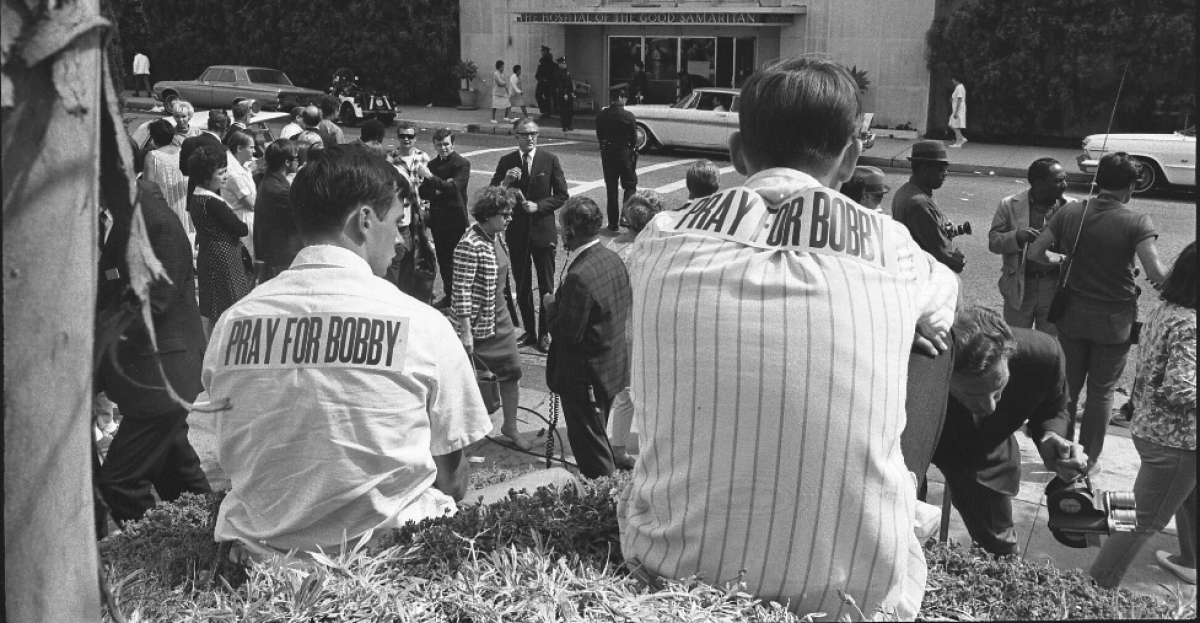
Why Robert F. Kennedy’s killing still haunts us
Time marched on. The grand Ambassador — a Wilshire Boulevard landmark that never got past the notoriety of that night — was torn down to make way for a learning complex in RFK’s memory complete with a Judy Baca mural. Sirhan Sirhan — who had written a manifesto three weeks before stating that “Kennedy must be assassinated June 5, 1968” — was sent to prison, where he has remained despite his attempts at parole and debunked theories that he was not the real killer (including some shared by RFK’s son, presidential candidate Robert F. Kennedy Jr.).
But for some, there has been no moving on.
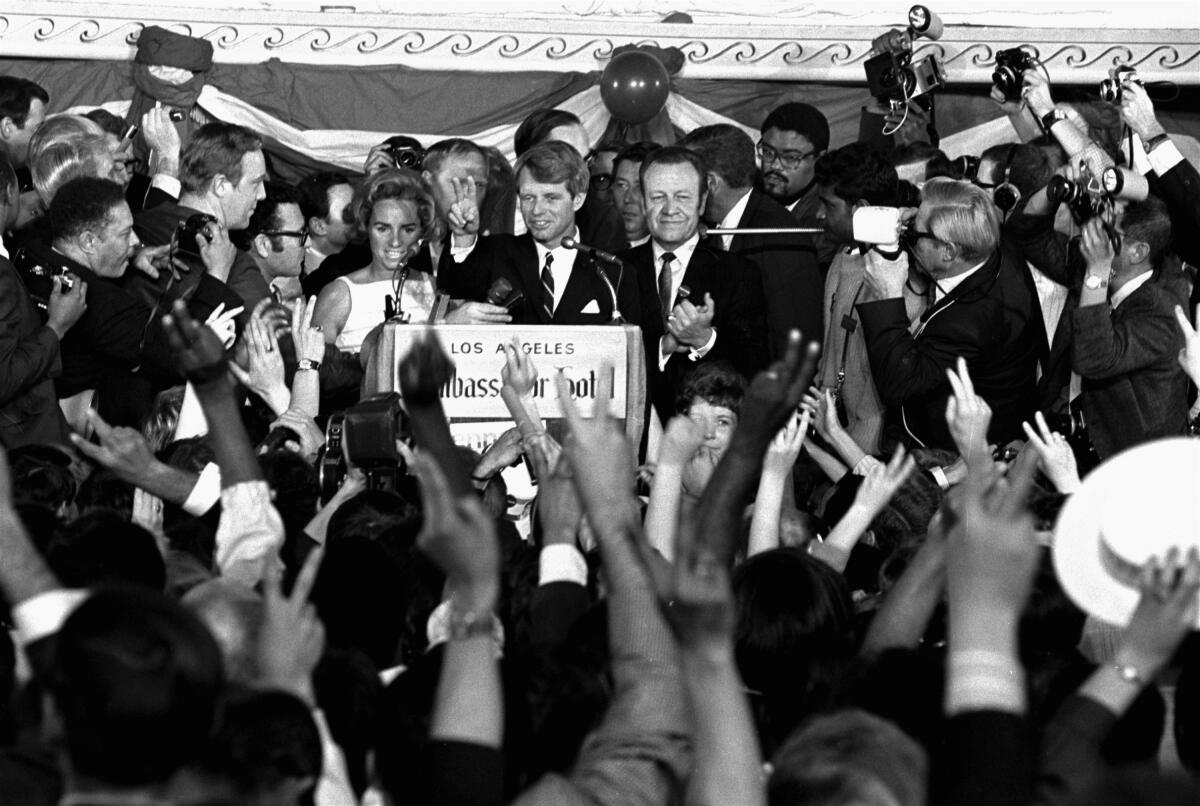
Juan Romero, the Ambassador Hotel busboy who cradled a dying Robert F. Kennedy, struggled for decades. He told Times columnist Steve Lopez he “always dreaded when June was coming up.”
“On far too many nights he lay awake wondering if Kennedy would still be alive if he hadn’t paused to shake a busboy’s hand,” Lopez wrote in 2016. By then, Romero said the fog of guilt and terror was beginning to lift. He died in 2018. Maria Shriver, RFK’s niece, told Lopez at the time: “God bless him. It’s kind of hard to know why someone gets put into a situation that they’re locked in forever.”
There has been much discussion over the decades about how RFK’s killer altered the course of history. Had Kennedy lived, would he have been the Democratic nominee? Would he have beaten Republican Richard Nixon, gotten the U.S. out of the Vietnam War quicker and slowed the conservative rise in America with his focus on youth and progressivism?
California ended up voting for Nixon, and the assassination left the state’s Democrats despondent. “Most of what I did that summer was sit around and cry and drink — and I didn’t cry much,” legendary Democratic powerhouse Jesse “Big Daddy” Unruh later recalled.
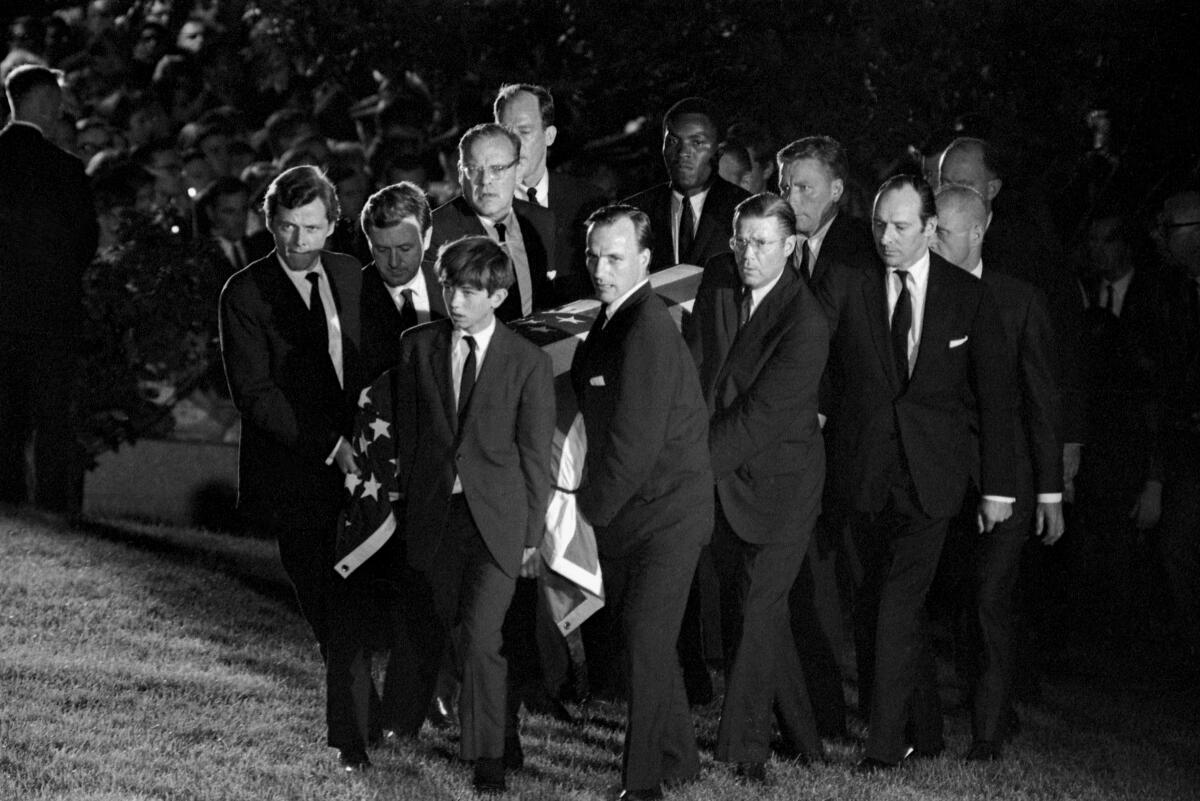
RFK’s lesson for 2024
The events in Butler, Pa., leave their own questions. Donald Trump survived. But the gunman came shockingly close and left the nation stunned.
How will this latest act of political violence change the course of history?
The early pundits predict it will probably make our politics even more toxic. And the last few days have not been encouraging.
But history has a strange way of defying the conventional wisdom.
RFK’s grave at Arlington National Cemetery contains some of his words that might help us now:
What we need in the United States is not division; what we need in the United States is not hatred; what we need in the United States is not violence or lawlessness; but love and wisdom, and compassion toward one another.
Romero read those words during a visit to Kennedy’s grave site with Lopez in 2010. He said it helped lift a burden, at least a little.
Today’s top stories

Election 2024
- Trump picks Ohio Sen. J.D. Vance, the “Hillbilly Elegy” author, as his running mate.
- A federal judge has dismissed the Trump classified-documents case.
- As the Republican convention begins, our columnists debate the “tone it down” mandate.
- Biden says ‘bull’s-eye’ remark was mistake, but that Trump is guilty of worse rhetoric.
Trump assassination attempt
- The would-be assassin came astonishingly close to Trump.
- Multiple security failures allowed him to get a clear shot.
- Trump assassination attempt raises stakes for GOP convention TV coverage.
Sports
- Copa América chaos hit Los Angeles with a massive brawl during the match.
- Colombia’s soccer federation president and son arrested amid Copa América final chaos.
- Gold medalist Natasha Watley slammed LA28 for moving Olympic softball to Oklahoma.
- More than home runs: Here’s how Teoscar Hernández has become a clutch contact hitter for the Dodgers.
- The Angels fielded an entire lineup of first-round draft picks. So why can’t they win?
- Lawrence Frank says Clippers are ‘disappointed’ Team USA replaced Kawhi Leonard.
- Angels take $2.75-million settlement from Anaheim over doomed stadium deal.
COVID on the rise
- Rising COVID clashes with carefree California summer as cases jump and precautions fade.
- California hit “very high” COVID levels as the virus in wastewater jumped significantly.
More big stories
- Newsom signs bill banning schools from notifying parents about student gender identity.
- UC regents: Protests yes, encampments no. Campus rules must be consistently enforced.
- He stole Guy Fieri’s car, shot at a romantic rival and got a life sentence. Now he’s been granted parole.
- The LAX People Mover could have a completion date — and $400 million in added costs.
- Former L.A. County Sheriff Lee Baca was found safe after being reported missing.
- Emmys 2024: Here are the nomination predictions for series and acting races.
Get unlimited access to the Los Angeles Times. Subscribe here.
Commentary and opinions
- Lorraine Berry: J.D. Vance’s book ‘Hillbilly Elegy’ was a con job. Don’t let it slide.
- Jenn Harris: Cabbage is magic. Is it finally having its moment?
- Sammy Roth: Don’t listen to the Dodgers Foundation. Big Oil is no All-Star.
- Anita Chabria: Our leaders are calling for unity. Do they mean it?
Today’s great reads
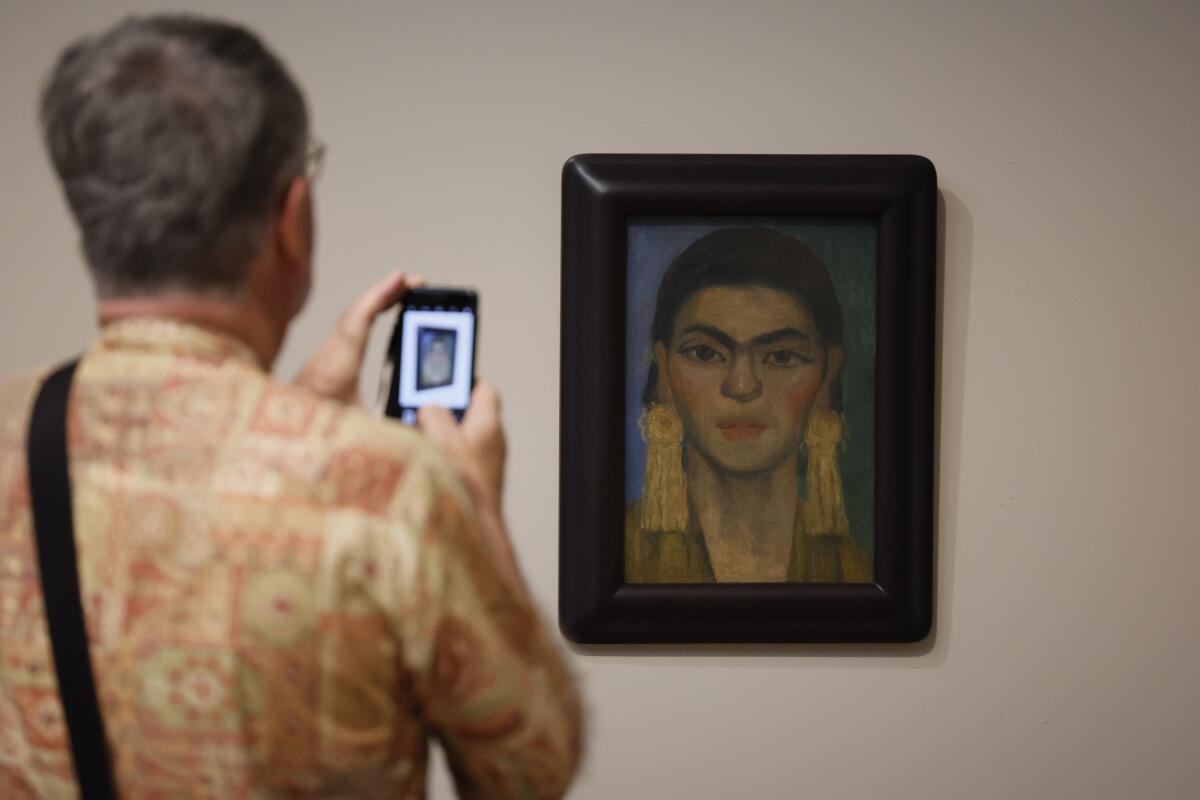
Frida Kahlo, Diego Rivera and a revelation about a rare LACMA portrait. Call it dating Frida Kahlo: how newly discovered photos raise compelling questions about an important Kahlo portrait and what it meant to the man who painted it, her husband.
Other great reads
- This costume shop outfitted Hollywood royalty for 50 years. Now it’s closing.
- As Brenda in “90210,” Shannen Doherty played a complex adolescent not unlike herself.
How can we make this newsletter more useful? Send comments to essentialcalifornia@latimes.com.
For your downtime
Going out
- Here are the 50 best beaches in Southern California.
- Did we miss one? Tell us: What’s your favorite beach in Southern California?
- The biggest fashion no-no’s and the best closet essentials, according to stylist Ann-Marie Hoang.
- Theater review: Rob Morrow and Marcia Cross breathe life into “The Substance of Fire.”
Staying in
- 📦 With “Prime Day” ahead, here’s what to do about porch pirates.
- 🌱 Here are 10 sun-loving houseplants that can take the heat.
- 🧑🍳 Here’s a recipe for Grilled Onigiri With Soy Mirin Sauce.
- ✏️ Get our free daily crossword puzzle, sudoku, word search and arcade games.
And finally ... a great photo
Show us your favorite place in California! We’re running low on submissions. Send us photos that scream California and we may feature them in an edition of Essential California.
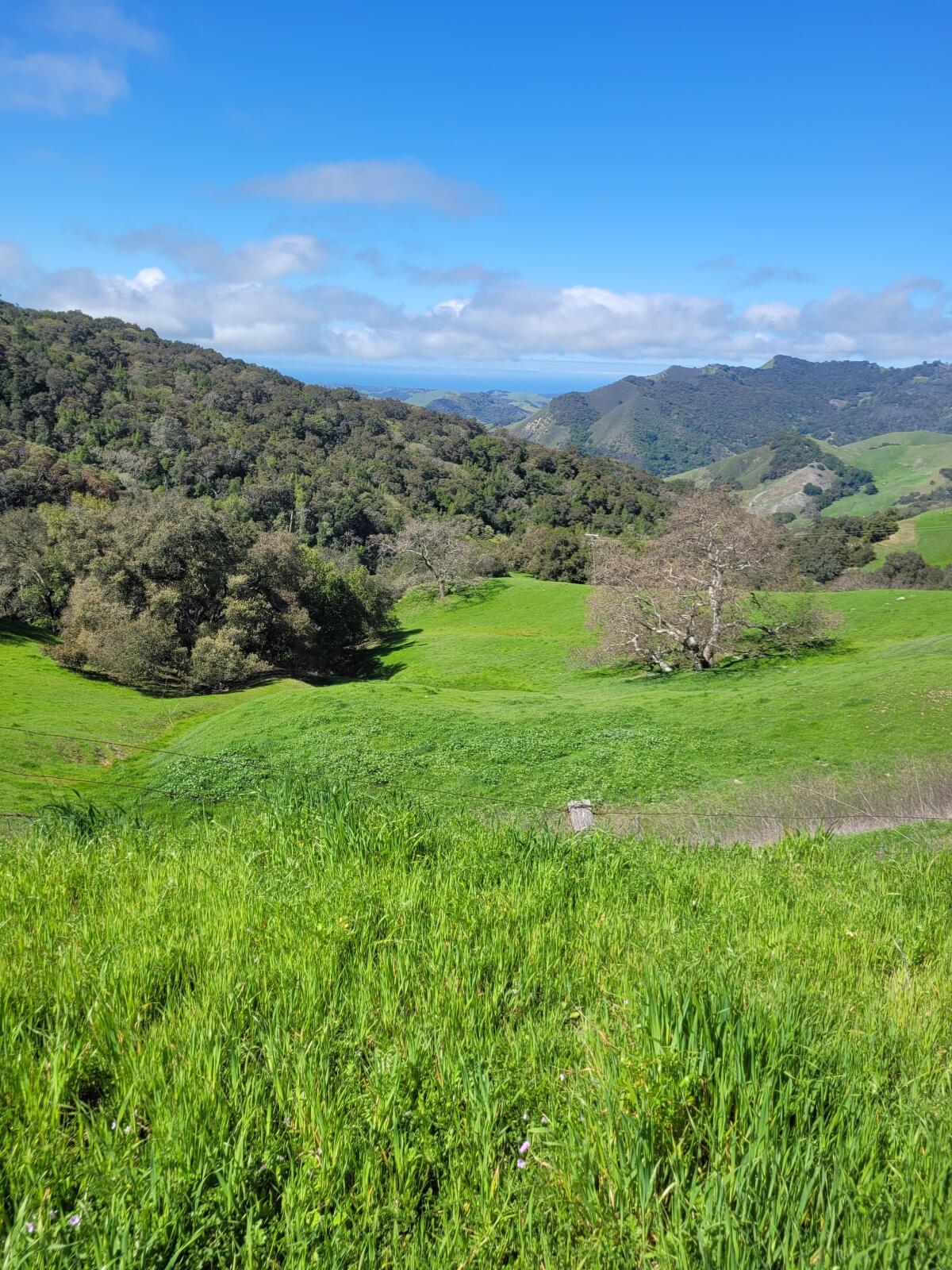
Today’s great photo is from Ellen Kirk of Long Beach: the crest of Santa Rosa Creek Road in Paso Robles. Ellen writes:
Mountains rolling into the sea? Absolutely “California,” though in springtime after a rainy year, you can be forgiven for thinking “Ireland.”
Have a great day, from the Essential California team
Shelby Grad, deputy managing editor for news
Christian Orozco, assistant editor
Amy Hubbard, deputy editor, Fast Break
Check our top stories, topics and the latest articles on latimes.com.
Sign up for Essential California
The most important California stories and recommendations in your inbox every morning.
You may occasionally receive promotional content from the Los Angeles Times.
